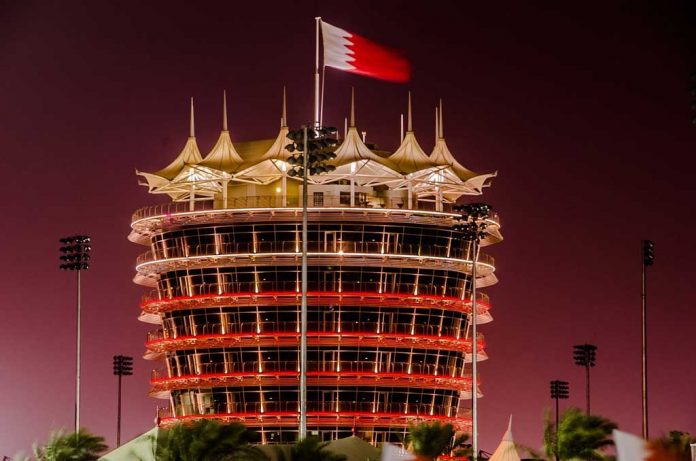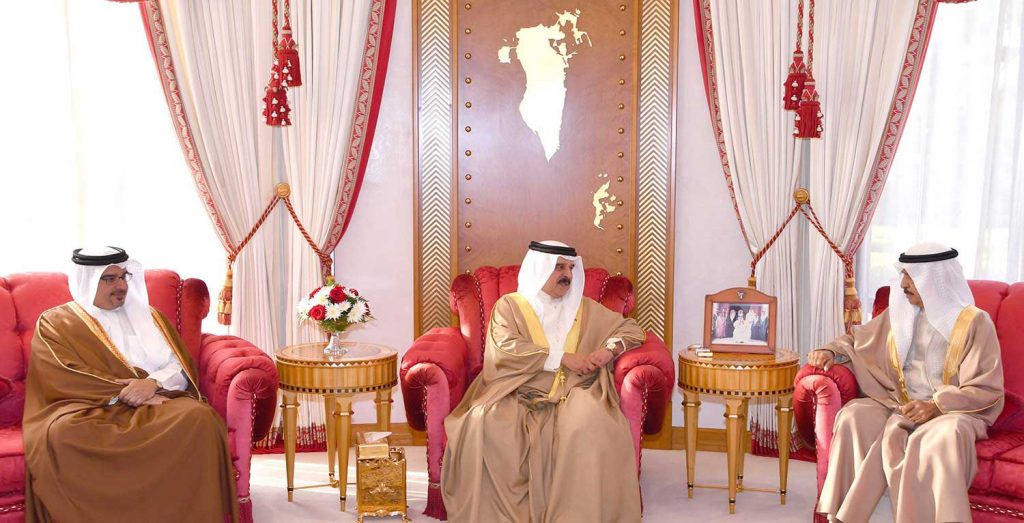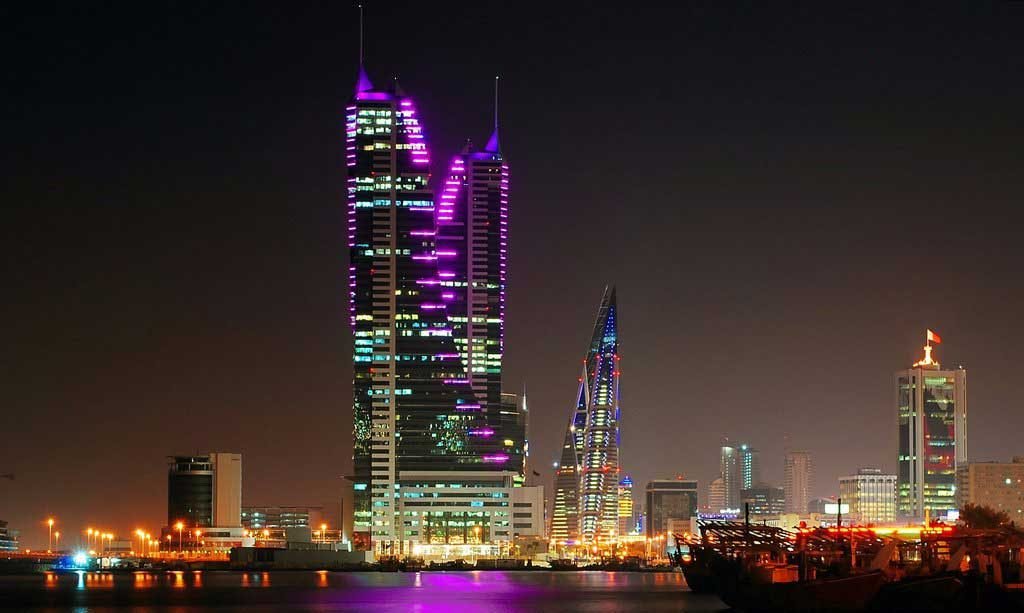CELEBRATING A LEGACY OF PEACE AND PROGRESS
Forty-six years ago, the Kingdom of Bahrain established 16 December as its National Day, a day that not only celebrates the independence achieved from the British on August 15, 1971, but commemorates the day of accession to the throne of the late Amir, HH Shaikh Isa bin Salman Al Khalifa. Since 1999 when His Majesty King Hamad bin Isa Al Khalifa came to the throne, the day has taken on added dimensions as a day of celebration and gratitude from the people to its Royal family for the reforms introduced that led Bahrain to democracy and stability.
Just as they did at the first National Day, citizens enthusiastically participate in the festivities each year. The country is ablaze with lights and color, and in all the business districts corporate houses decorate their buildings in Bahrain’s striking national colors of red and white. Pageants and festive programs are held across the country, and cars can be seen proudly flaunting the flag or covered with National Day themed stickers and messages. Fireworks, laser shows, colorful floats, carnivals, and concerts – it is truly a day when the spirit of patriotism, unity and joy overflow. For the nation as a whole, National Day has also been a time of retrospection, a moment in time from which to look back at the journey, and to feel a deep sense of gratitude for the vision of the leadership, for the efforts of the government and to all those who have played a role in the success story that is Bahrain today.
Bahrain, though smaller than any of its Gulf neighbors in terms of size, has always been large in aspiration. Among many firsts, it was the first amongst the Gulf countries to experiment successfully with democracy. With a vision that was as focused, as it was strong in purpose, the government under the guidance of His Majesty King Hamad bin Isa Al-Khalifa successfully implemented a new system of governance in October 2002. The elections in Bahrain were a landmark event not only for the country but also for the entire region. Bahrain had set an example. With the steadfast support of the His Royal Highness Prince Khalifa bin Salman Al-Khalifa and the Crown Prince and Commander in Chief of the Bahrain Defence Forces, Prince Salman bin Hamad Al-Khalifa, His Majesty King Hamad has directed the course of the nation on a visionary path.
LOOKING BACK THROUGH THE YEARS
Bahrain’s history is as long as it is illustrious. Ancient seals and archaeological findings point to a civilization that has long roots. Epic stories of the legendary Gilgamesh, to etchings found in ancient Sumerian seals all, speak of a long story of cultural and social evolution. It is known that some 5000 years ago Bahrain was home to the ancient Dilmun civilization, which lasted around two millennia. Since then Bahrain has been occupied alternately by Babylonians, Sumerians, Greeks, Persians, Portuguese, and Turks, among others – each leaving behind traces of their presence and integration within the country, making Bahrain truly a melting pot of different cultures and civilizations. Strategically placed in the trade route between the Indus Valley civilization consisting of the present Indian sub-continent and the Mesopotamian civilization, which is modern day Iraq, Bahrain was the natural stopover for traders, bringing along with their goods; languages, ideas, trades and knowledge that found in Bahrain’s welcoming and hospitable climate, a natural crucible for dialogue and advancement.
The six hundred years from about 300B.C. to 300A.D, prosperous years in its history saw Bahrain’s reputation as a pearling center grow. In the first century A.D., the Roman writer Pliny in his accounts makes mention of the fact that Tylos, as Bahrain was known then, was famous for its pearls. Traders from India representing the rich Maharajahs and from the West representing some of the most famed jewelry houses, including Cartier would make their way here to purchase the finest natural pearls which the seas surrounding Bahrain produced. The word “Bahrain”, in fact, was coined from the words meaning ‘two seas’ in Arabic, referring to the underground sweet water springs that mingle with the salt-water sea – also a reason for the extraordinary luster and caliber of the pearls. It has since been a fitting and lasting name for the archipelago of 33 islands surrounded by sea that makes up Bahrain.
For many centuries, Christians and Muslims lived peacefully together in Bahrain and even today, Bahrain has a small community of indigenous Christians. People of other religions also came into the country over the years and coexisted in harmony, its diversity a testament and credit to the religious tolerance and acceptance the country has always exhibited.
Since the early 1780s, the Al-Khalifa family have been the rulers of Bahrain, holding the country together through many ups and downs and overseeing its challenges through generations. In the 1830s Bahrain signed the first of many treaties with Britain. Britain offered the country naval protection in exchange for free trade access in the Gulf. The British continued to be a presence all through the following decades, administering the country through its power base in India, until the reign of Shaikh Isa bin Salman Al Khalifa in 1961.
The discovery of oil in 1932 while marking the end of the dwindling pearl trade saw the fortunes of the country change with the discovery of oil. When His Highness Shaikh Isa bin Salman Al Khalifa became ruler of Bahrain in 196, he spent the first ten years of his rule preparing Bahrain for independent statehood, freeing them from the political and military treaties that bound them to the British government. In 1971, Shaikh Isa took on the title of Amir and, declared Bahrain an independent sovereign Arab State. He was prudent in signing a treaty of perpetual friendship with Britain and in joining the United Nations and other world bodies as well as the Arab League.



